
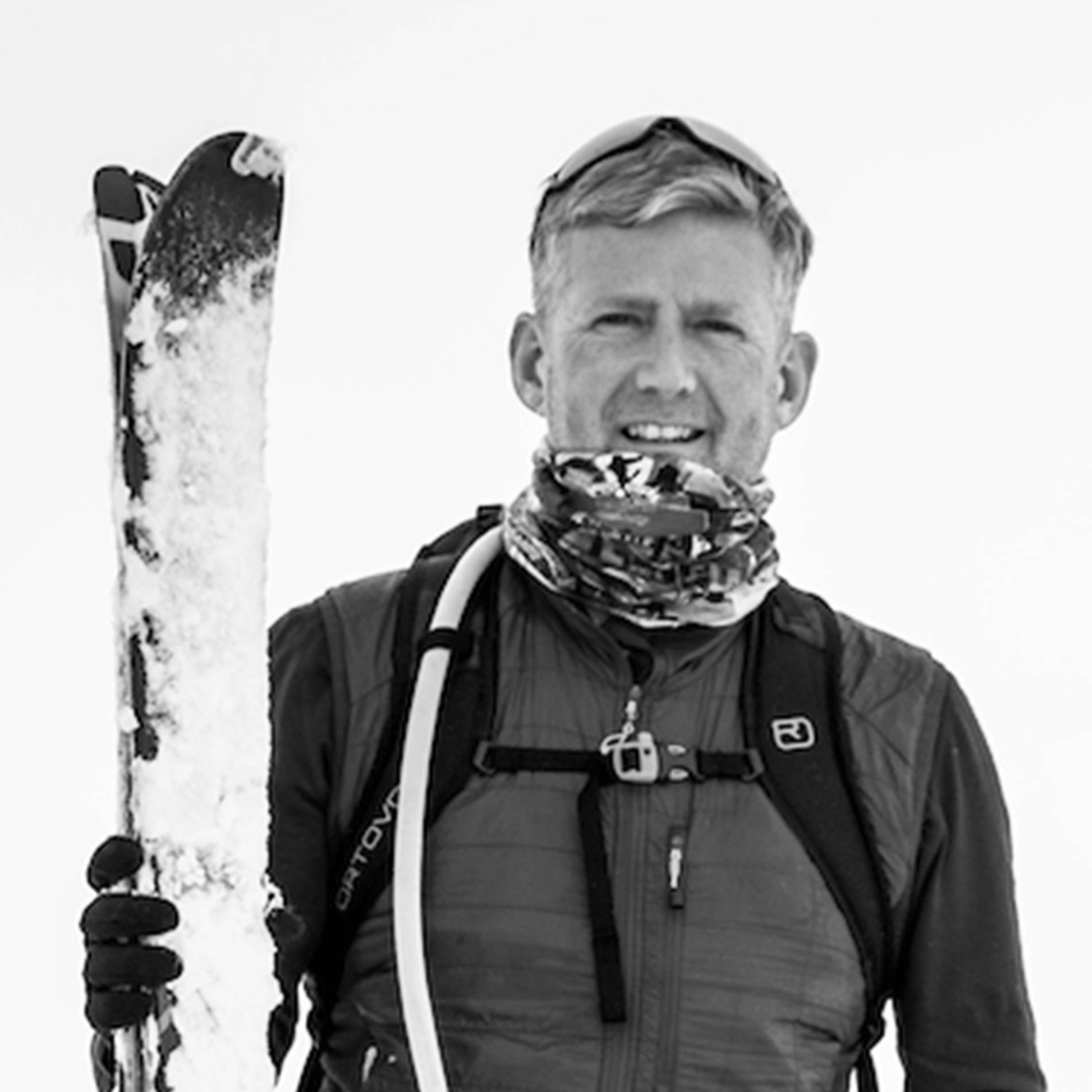

An Interview with Rob Ritchie
Founder, Everest in the Alps
Motivation often comes from adversity. For Rob Ritchie, it was his son Toby being diagnosed with an inoperable brain tumour aged five. Feeling helpless but determined, Rob resolved to do all he could to help increase awareness of low-grade gliomas and raise funds for research. At the time, little was known about this type of tumour that affects over 26,000 children and young adults globally and hardly any research funds were available.
That’s when thoughts of ascending the height of Everest on skis began.


An Interview with Rob Ritchie
Founder, Everest in the Alps
Motivation often comes from adversity. For Rob Ritchie, it was his son Toby being diagnosed with an inoperable brain tumour aged five. Feeling helpless but determined, Rob resolved to do all he could to help increase awareness of low-grade gliomas and raise funds for research. At the time, little was known about this type of tumour that affects over 26,000 children and young adults globally and hardly any research funds were available.
That’s when thoughts of ascending the height of Everest on skis began.
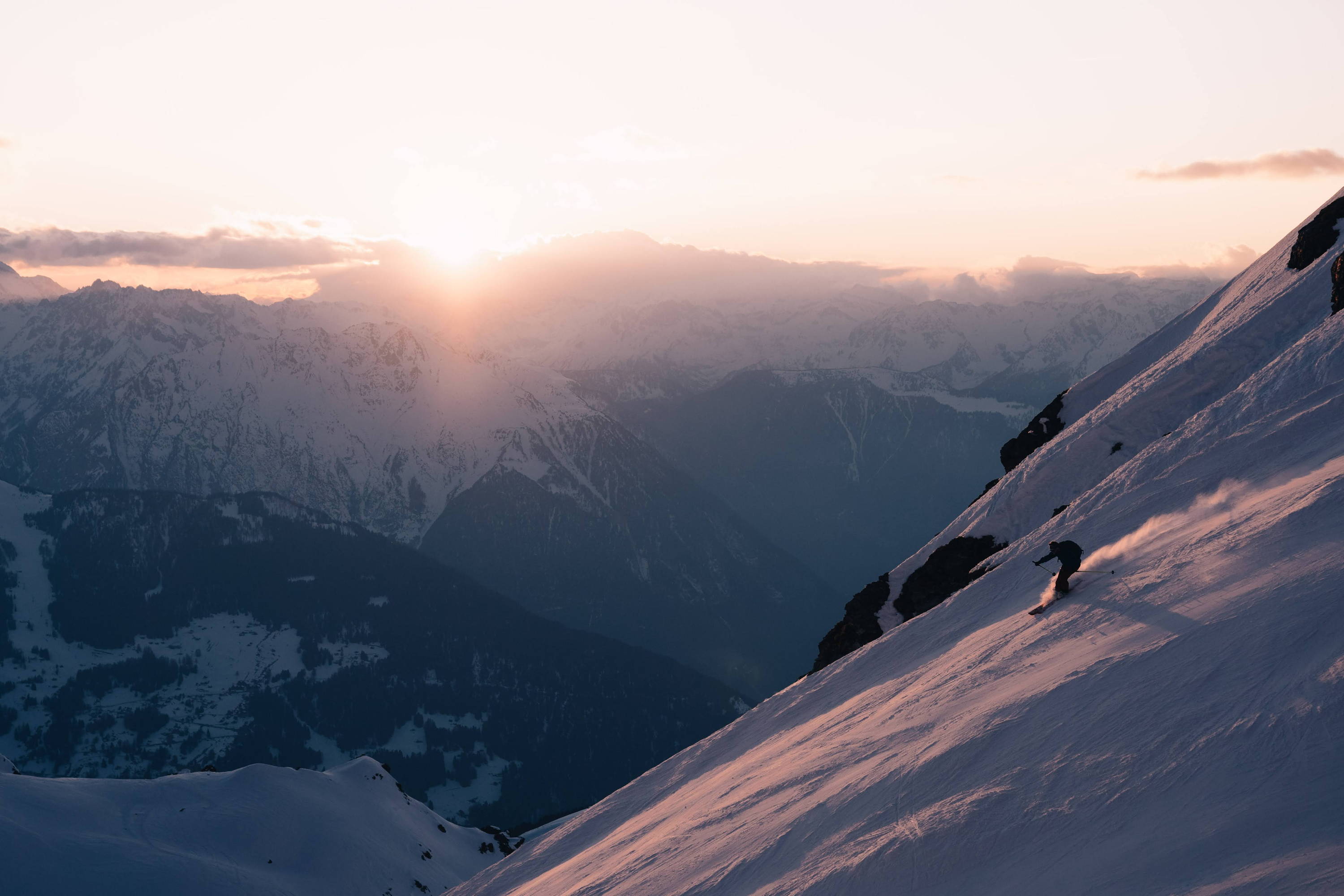
Everest in the Alps launched in 2015 and has gone on to raise over £5m for the Brain Tumour Charity.
Where did the idea come from?
Rob: From Toby’s struggle with his brain tumour from a very young age, and ultimately from my love of the mountains. I love my family and I love mountains. These are my two real passions. So when Toby, my youngest son, became a really sick five-year-old and was then subsequently diagnosed with a brain tumour, I, like all parents in such a situation, wanted (needed) to do whatever I could to help him. At the time I was starting my journey with ski-touring, shifting the balance from Alpine downhill to ski-touring to find better routes, better snow and some solitude in the mountain. It was also driving my fitness. How high could I go in vertical ascent in a day and how fit would I need to be to do it? So in the end it was inevitable that these two things came together.
I was desperate to find a ‘challenge’ to fund raise for Toby, for brain tumours and for thousands of kids like Toby. And I wanted to push myself and do something unique, something other people were not doing, and something to prove that I was prepared to put myself through pain to help him. Ski touring the height of Everest felt like the right metaphor. I hoped it was going to help him and it was going to help me. I am not sure if that makes sense but it was crystal clear to me at the time. And that’s how EIA started.
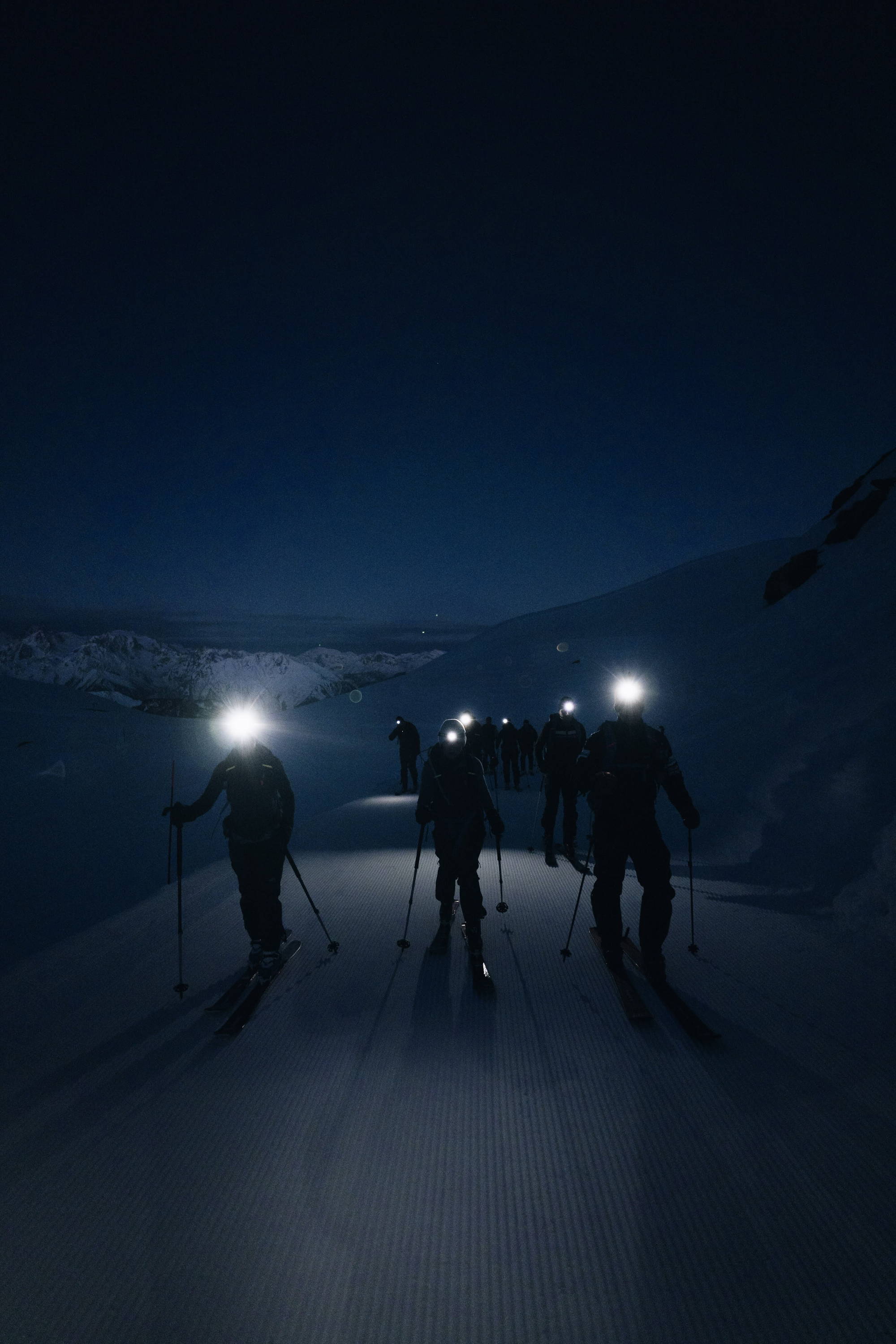
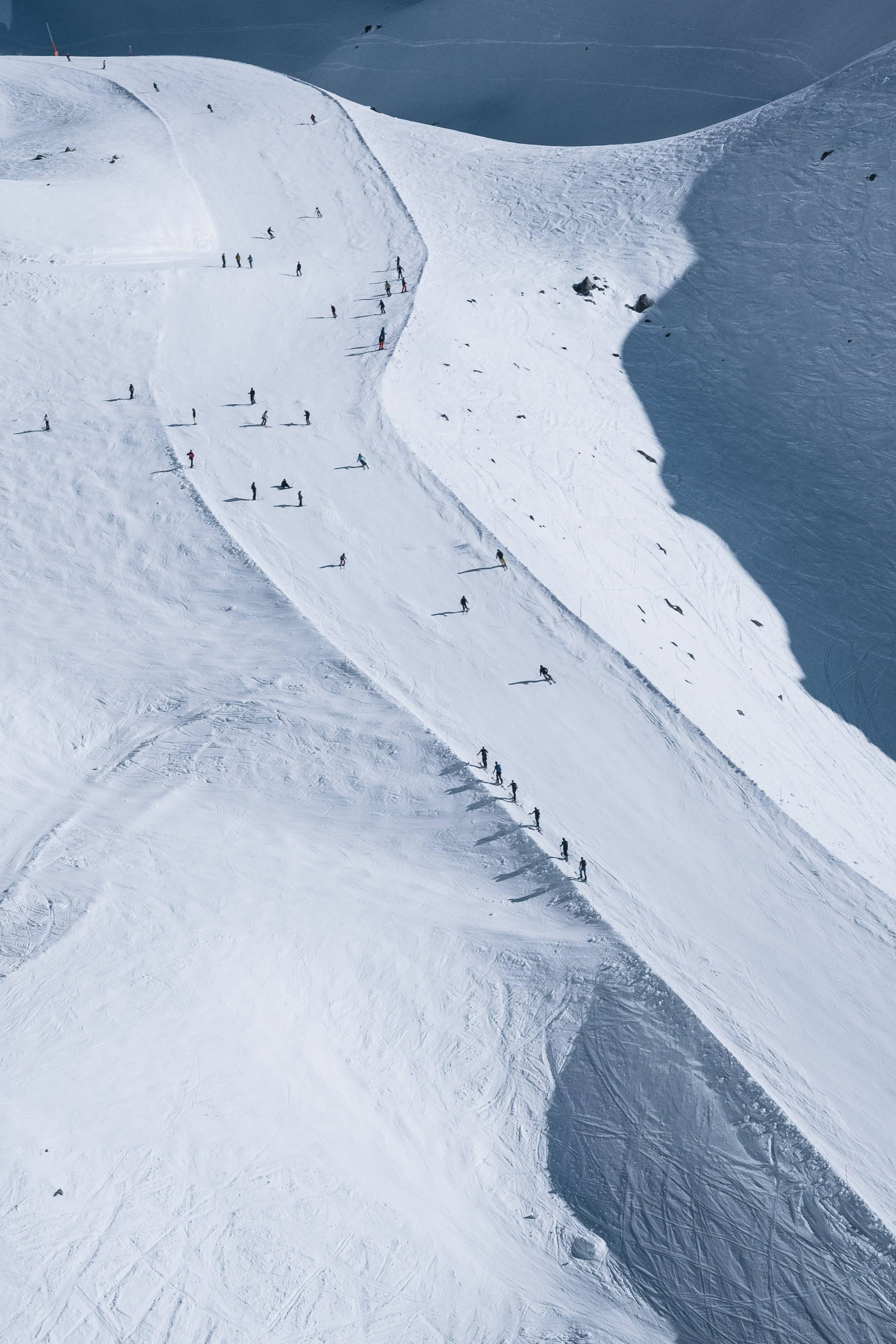
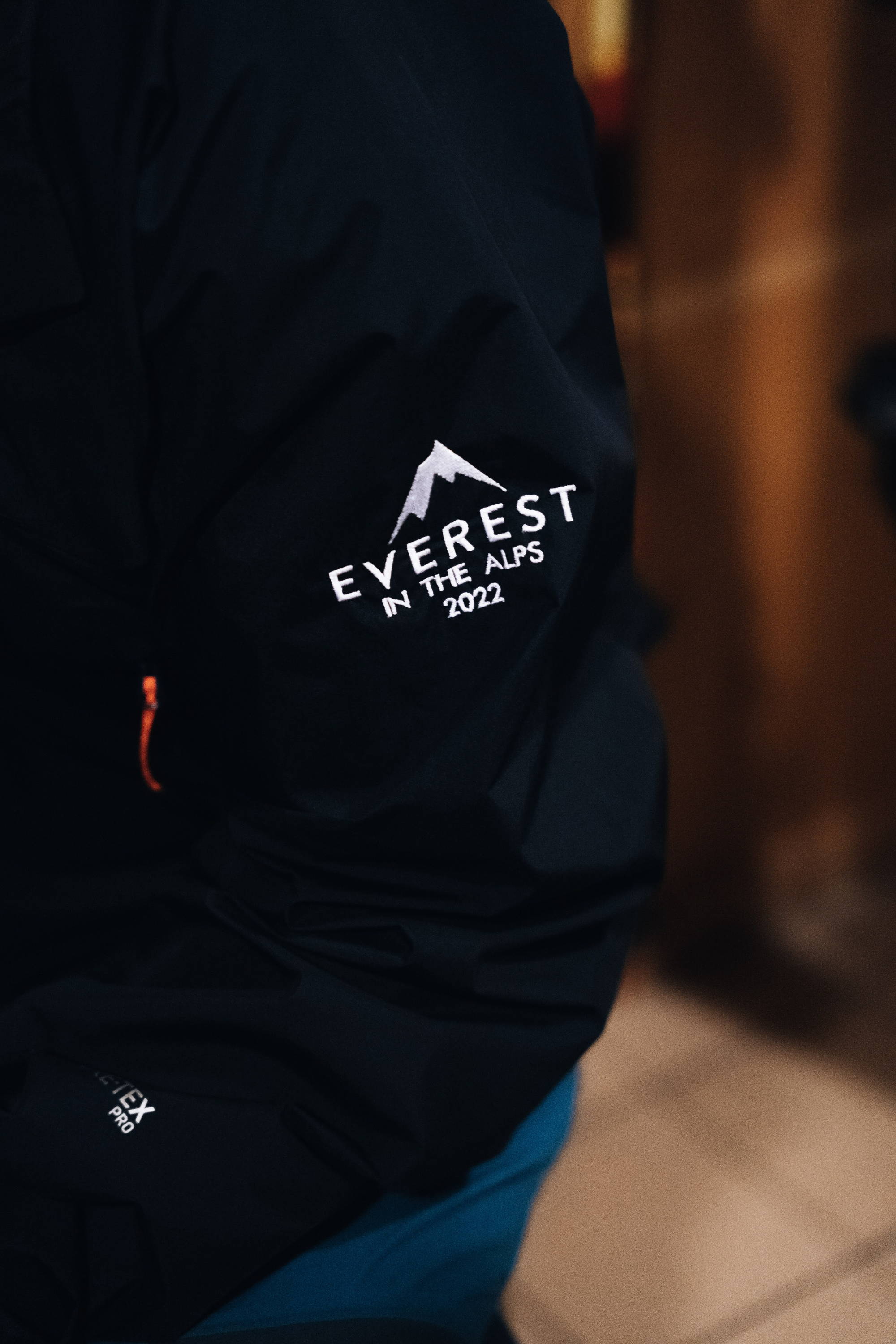
Tell us more about your son, Toby - and can you paint a picture of the life experience of an individual living with a brain tumour?
That’s a brilliant question and I am not sure I have been asked it before. Toby is a typical boy, the third of three boys. He was from an early age the bravest, most daring, and even reckless, toddler! He was driving himself to keep up. With the onslaught of a tumour and then years of hospitalisation things inevitably changed – two dangerous brain surgeries, a collapsed lung, intensive care, 18 months of chemotherapy, I could go on and on – it took its toll, physically and mentally.
Now as he grows he is coming to terms with all of this and we could not be more proud of how every day he is fighting to overcome all of these challenges, even if the future is uncertain. Like most of us, of course, all he really wants to do is fit in and to do all the things he naturally feels like he should be able to do. Every child surviving with a brain tumour will have a different experience, but I am sure that they all share the feeling that what they have had to endure, survive and recover from is more than most of us will confront in a lifetime. It makes you a different person, and it can make you stronger in some ways, but it’s a lifetime journey that really no child deserves to go on.
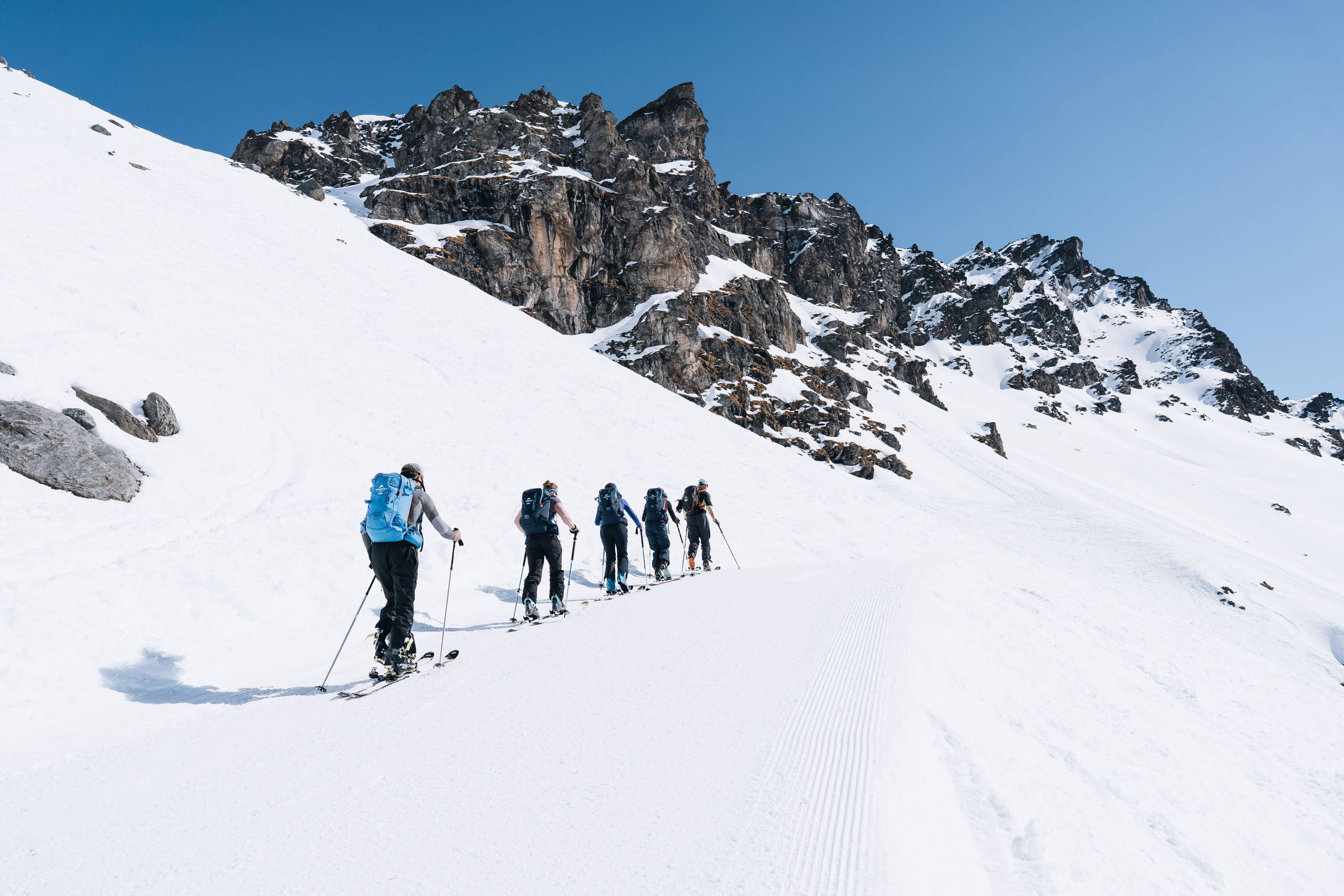
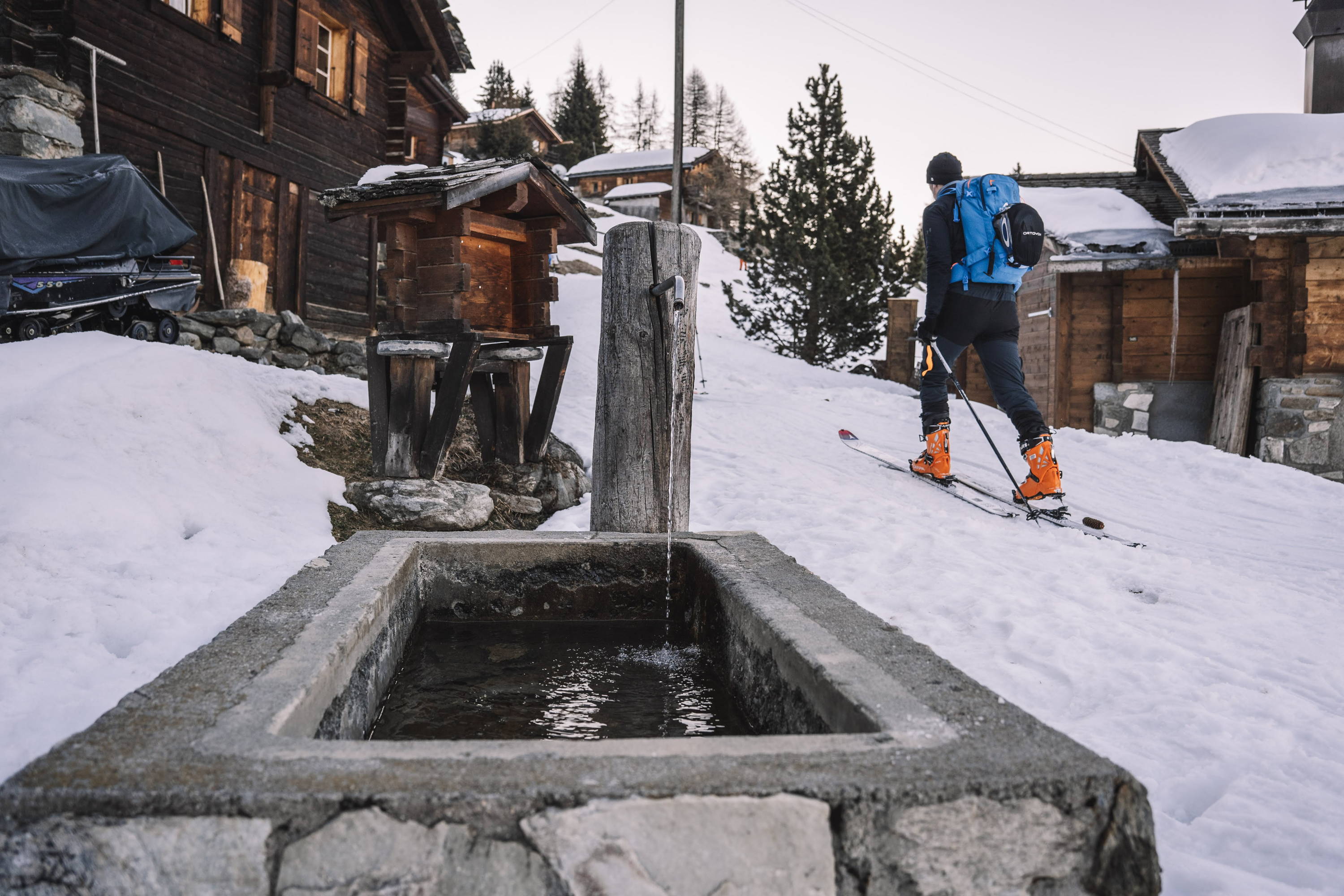
Into what areas have you channelled the £5m raised to date, and what kind of results have you seen?
We were very lucky to work with the Brain Tumour Charity to channel the funds we raised towards a new research centre, focused on paediatric low grade brain tumours. We named it after the challenge and it exists today, based in Heidelberg at the German Cancer Research Centre. It’s called the Everest Centre. The passion and generosity of those people around us, and of course the unique and inspiring qualities of the Everest in the Alps challenge, helped us to raise £5m over five years which paid for the first five-year cycle of research and we are now fundraising for the second five years. The list of achievements for the centre are honestly amazing. Not only have they galvanised research in this area, globally identifying new tumour types and developing new methods to monitor how cells react to treatment, but they have two promising new drugs ready for clinical trial.
My great hope is that as a result of Toby’s journey, and with our association with the Everest Centre and devotion to EIA, we will be able to point to better and more targeted treatments for children with brain tumours. So that in the future if your child gets that diagnosis – there will be a far, far better outcome.
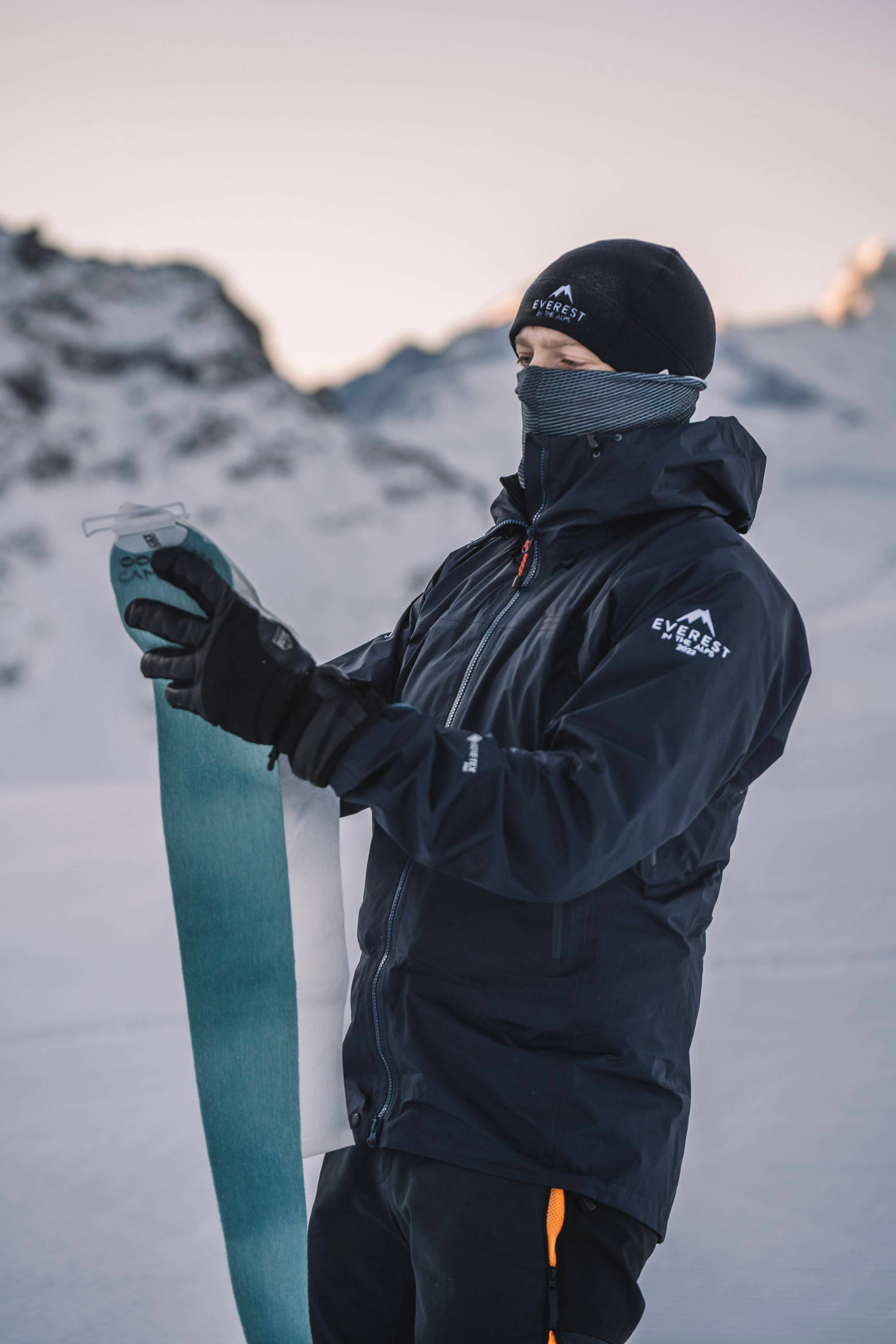
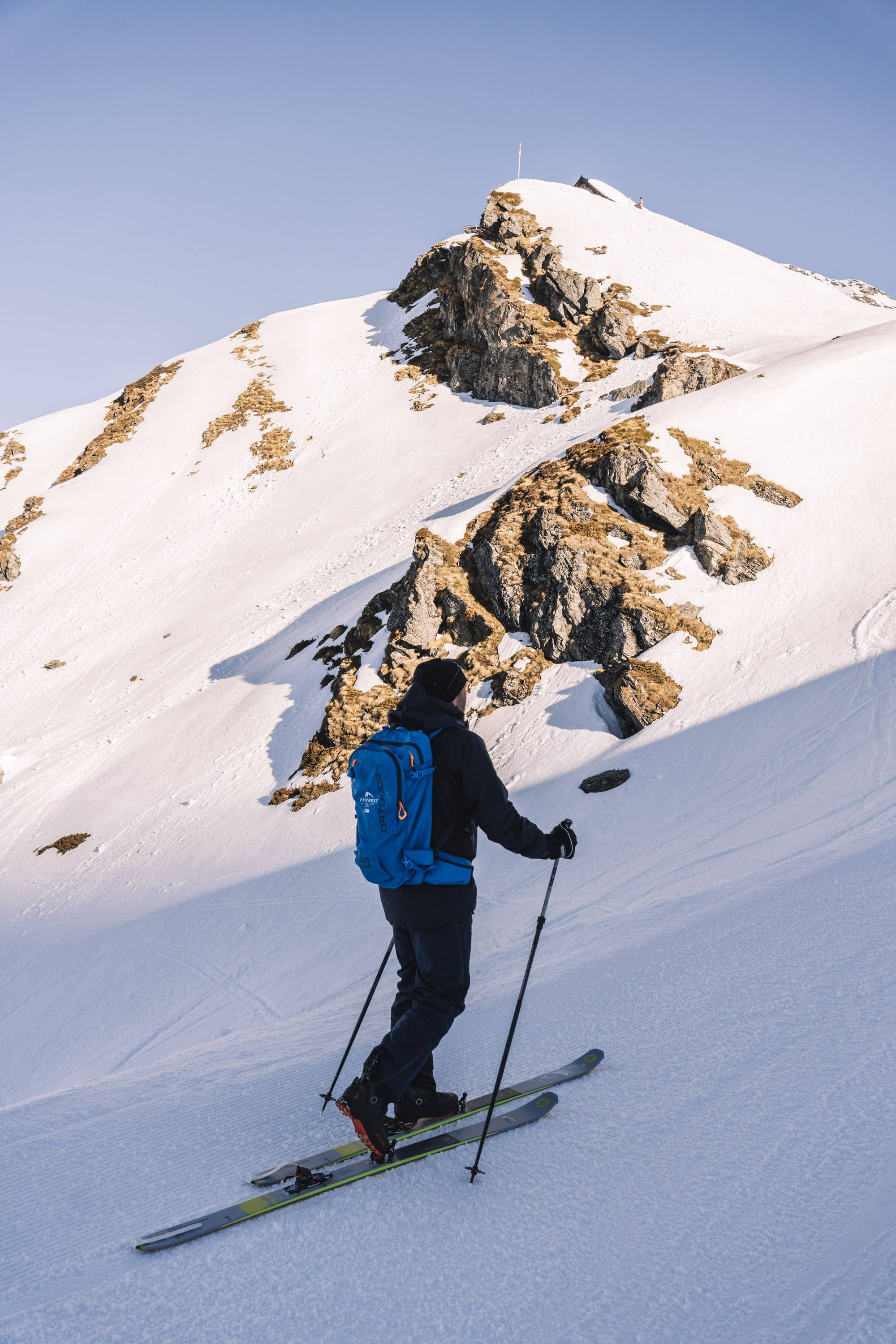
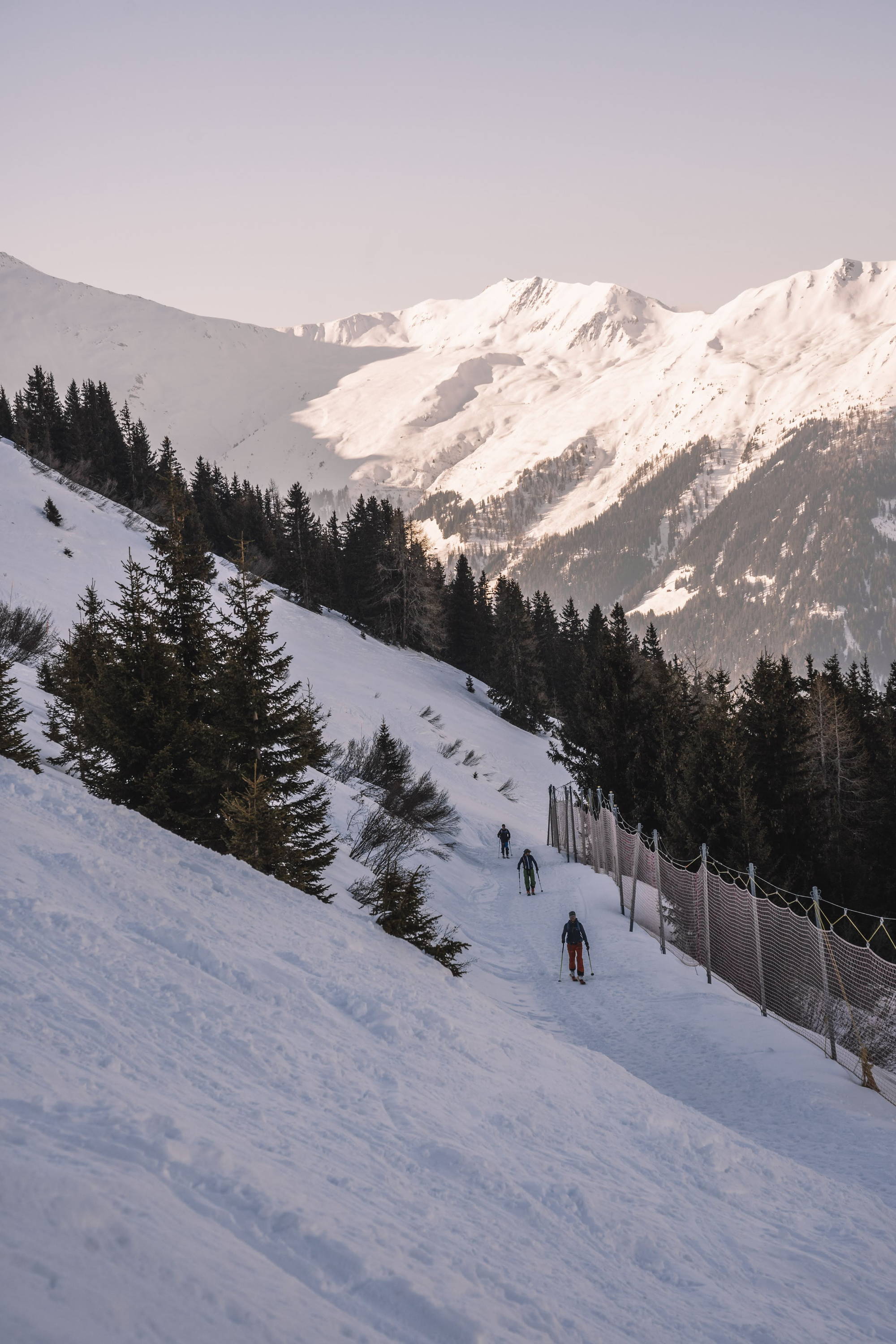
Tell us a bit more about the event itself. Who takes part, and what does it feel like to ascend nearly 9,000m over the course of only four days?
You will need to join us to find out! It’s tough. But if you get fit it's manageable. It has appealed to a truly diverse group of people over the years. We have had ultra-athletes and we have had people doing this as their first challenge. We have people in their 20s and people in their 50s. However for everyone it’s long days on the mountain ski touring, starting, and often ending, in the dark. It’s all about the height and the uphill – you spend a fraction of the time skiing down of course, which takes a mental as well as physical toll. It’s also complex as there’s a lot going on: you have to manage your pace and heart rate, your hydration and your re-fuelling, your layers, clothing and equipment.. whilst overnighting in mountain huts. That said the satisfaction is immense – for those who have completed it, it is typically “one of the best things” they have done.
What does it feel like to complete the challenge? Well there are often tears.. and for most people it takes time to comprehend it all, as the reality of the mental and physical challenge sinks in. But there’s nothing like it. A sense of exhilaration, cameraderie and achievement that lasts, and of course, the knowledge you have been putting yourself through all of this for such a worthy cause.
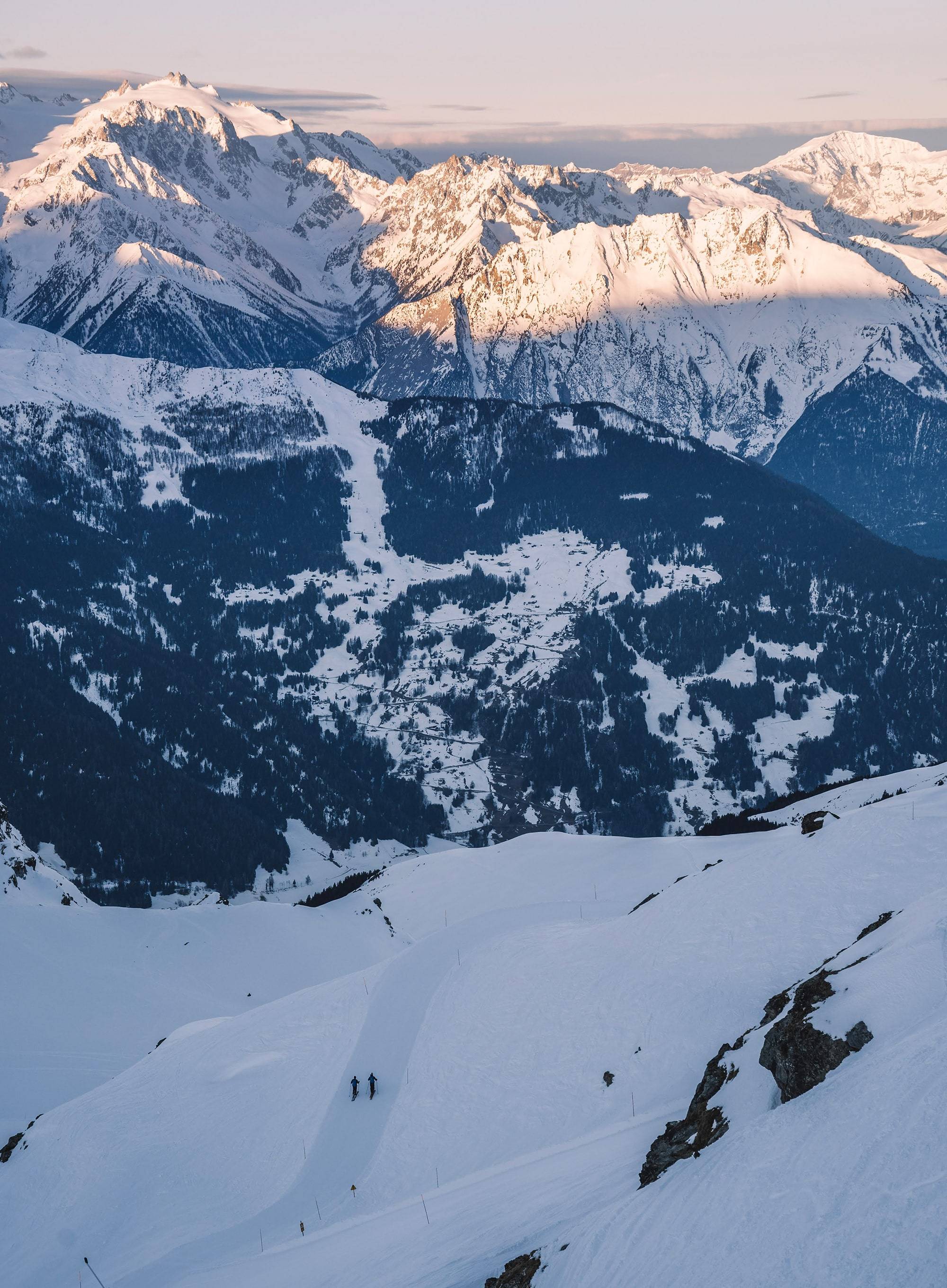
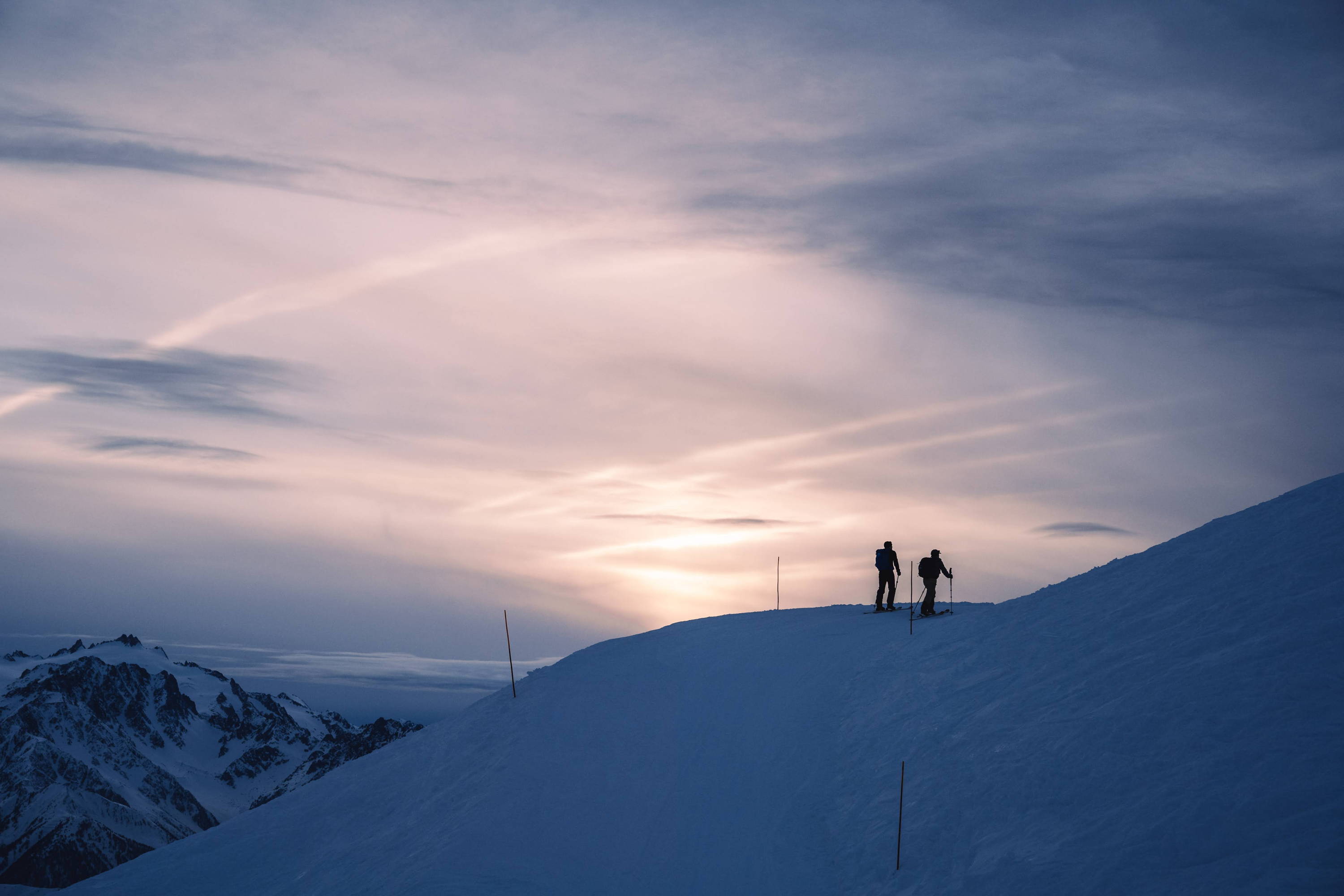
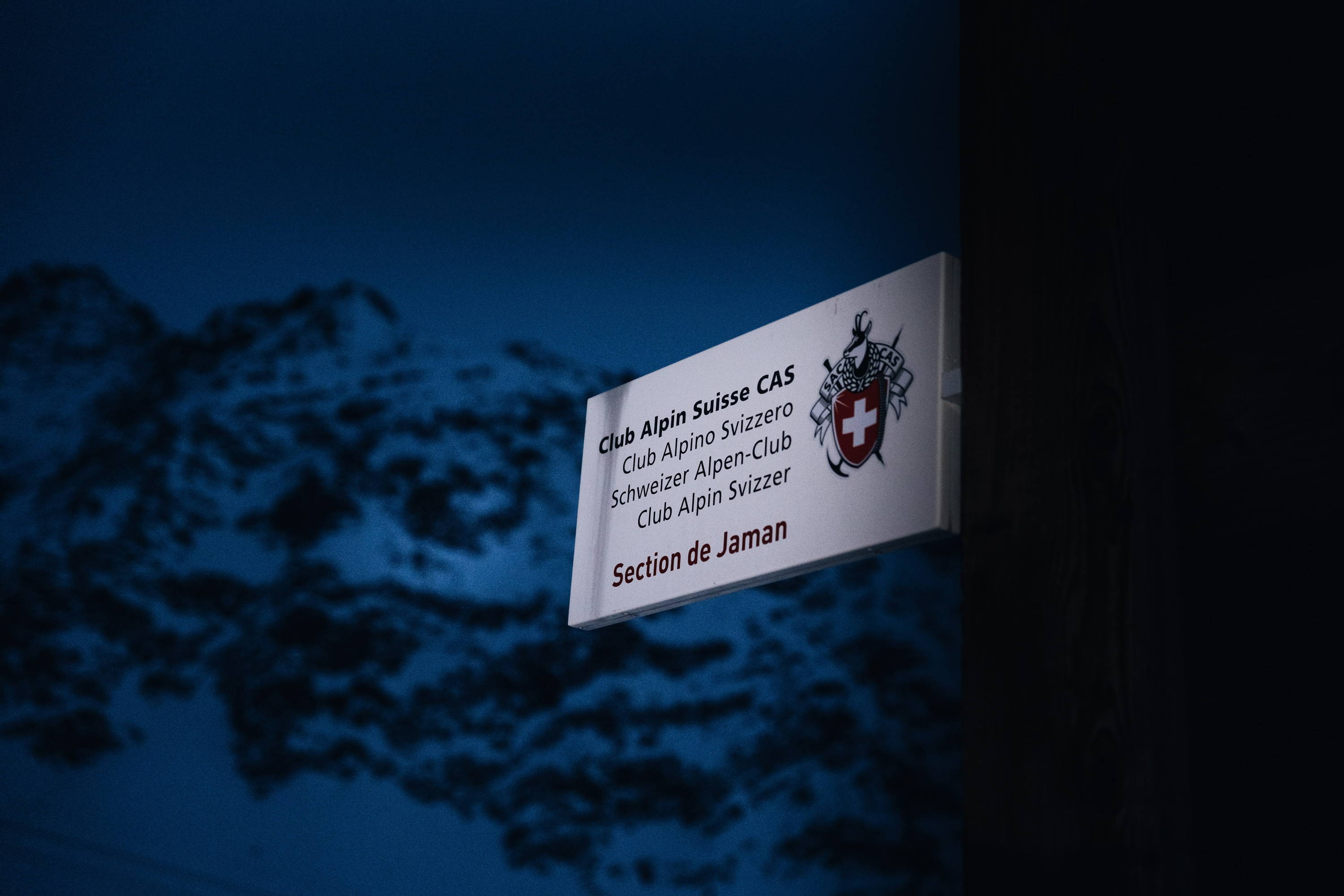
Describe the physical training process that’s gotten you into shape for this.
You have to train and commit, and its months not weeks of preparation that’s required to get through the challenge successfully. The fitter you are the more enjoyable the event is too of course! For me it’s six months of preparation at least (particularly as I get older!), starting the summer before the event. And with a full-time job this becomes a mental as much as a physical programme of preparation to be honest. I have to push myself to train (largely through winter months in the dark) at the start or the end of the day when other people are either asleep or relaxing! I also tend to do some very long stretches of exercise at the weekend to give me the confidence that I can go the distance. I mountain bike and I think it’s the best preparation but we are all different. The versa-climber, cross trainer, rowing machine, bike and of course time in the mountains all feature for me. I also try to get time with a trainer to have me focus on core strength which is particularly valuable on EIA. Above all I tend to train with friends to share the journey.
Getting fit is a huge part of the event itself. The fear of the unknown with EIA typically pushes people to their peak fitness in preparation, and that cannot be a bad thing and is a fantastic feature of the EIA concept.

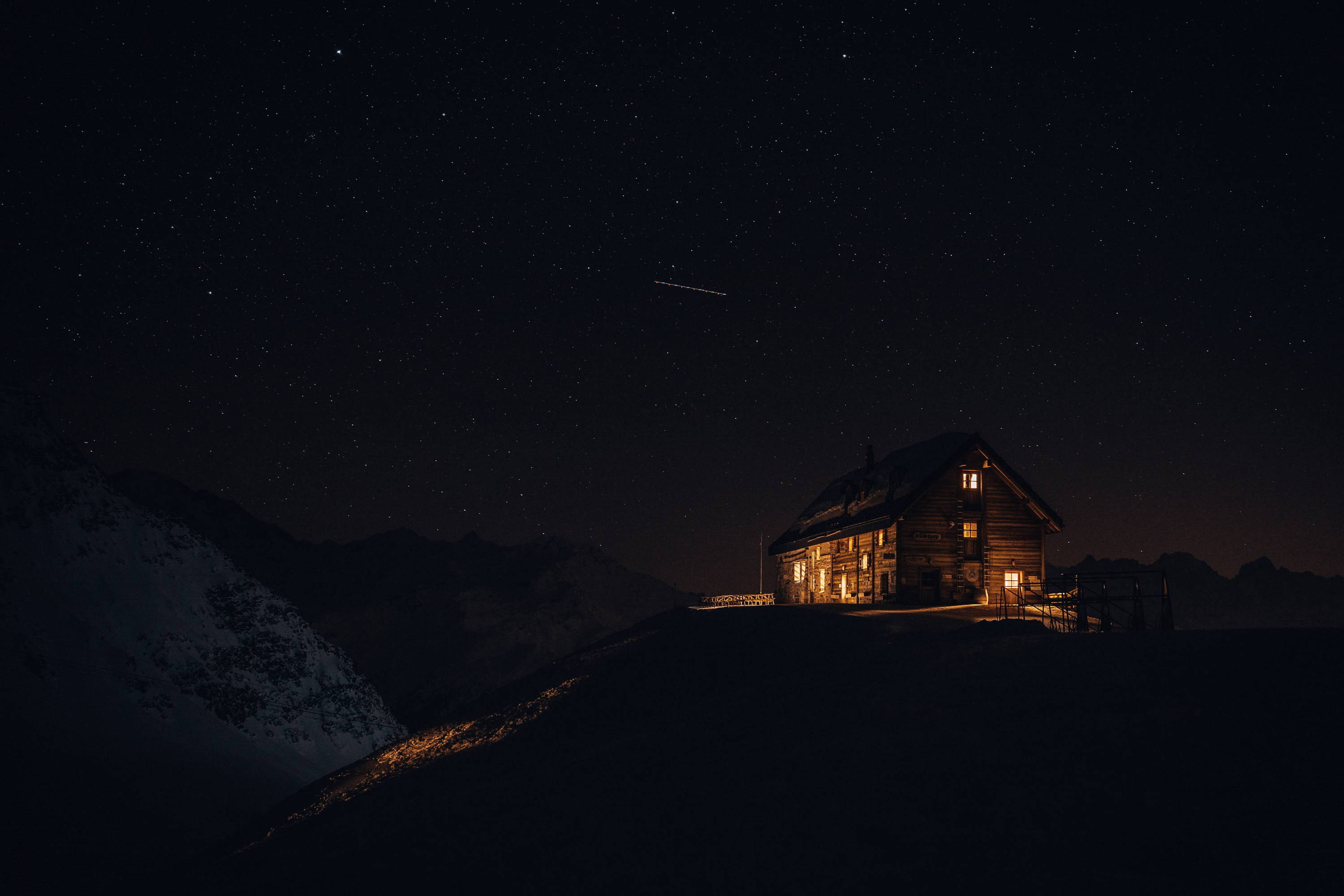

You head out to the Swiss Alps this week for what will be your sixth iteration of Everest in the Alps.
Beyond the money raised, what has doing this given you personally? And what are your hopes for the organisation looking ahead?
Wow, well this is complicated I am guessing... of course EIA has given me a physical and mental outlet for all the anger and sadness that Toby’s diagnosis has caused for him and our family. This is immense for me and it has undoubtedly changed my life. It’s also allowed me to organise, engage and lead in the issue of paediatric brain tumours. Apart from anything else to have so many friends come and take part and complete the challenge in support of the cause has been incredible. Human nature at its best.
Less important it also kept me fit; fitter than I would have been for sure and it’s ensured I am no longer complacent about my body, what it can endure and how I should use it. I know that I can get fit, do something tough whilst encouraging and helping others to do the same. Finally it has also taught me to take time out. We all have busy lives with thousands of excuses not to do things.. but EIA has been the vehicle for me to break that cycle.
In terms of what’s next we will see. We have staged other versions of the event such as Everest in the Lakes and we are now looking to trial the event in the US, so there is much we can do with the brand. Ultimately the success of this will be whether we help research move forward and improve outcomes for kids with that terrible diagnosis. We have already achieved a lot but there is more to do. Everest in the Alps is just the best way I can think of to achieve this.
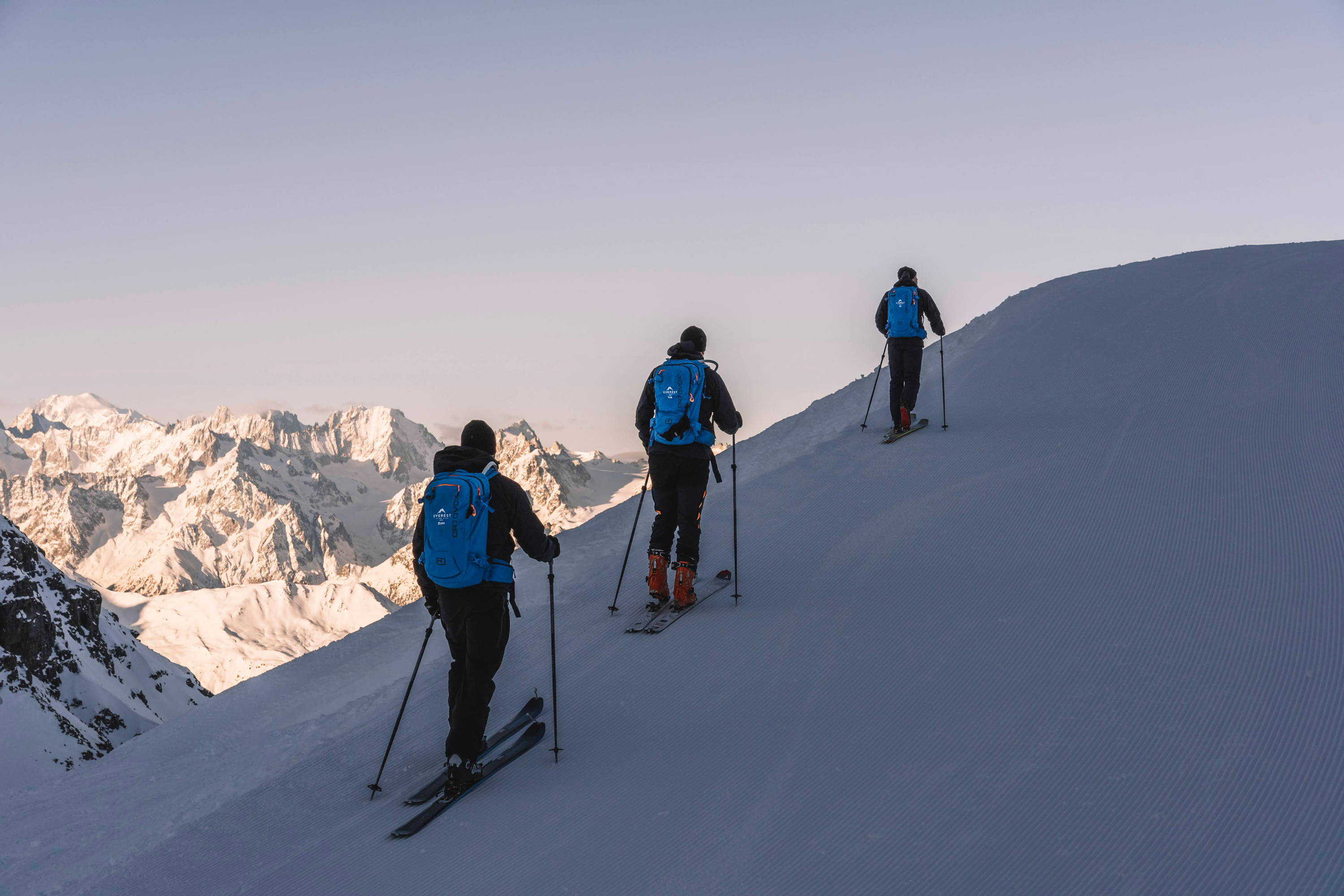
The goal is simple; the challenge is anything but.
A gruelling event taking place in Verbier in the Swiss Alps, involving approximately 32 hours of uphill ski touring to reach the overall target of 8,848m. Each Everest in the Alps challenger will burn through a daily average of 10,000 calories – the equivalent of running three back-to-back marathons - whilst raising money for a cause close to their heart.
All images © Sam Hill




